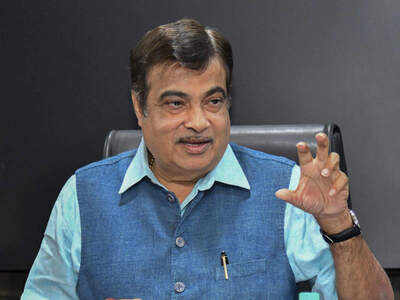- News
- City News
- nagpur News
- IIM-N & CIRT MoU to usher in new beginning in areas of management and automobile: Nitin Gadkari
IIM-N & CIRT MoU to usher in new beginning in areas of management and automobile: Nitin Gadkari

Nitin Gadkari was speaking during the signing of a pact between the two institutions which took place at his home. It was signed between IIM director Bhimraya Metri and CIRT director Rajendra Patil.
NAGPUR: Union transport minister Nitin Gadkari on Thursday said the memorandum of understanding (MoU) inked between IIM here and the Central Institute of Road Transport (CIRT), Pune, would usher in a new beginning in the area of management and automobile engineering.
He was speaking during the signing of a pact between the two institutions which took place at his home. It was signed between IIM director Bhimraya Metri and CIRT director Rajendra Patil. TOI on Thursday published an exclusive interview of IIM Board of Governor chariman CP Gurnani where he elaborated on the pact between two institutions.
As per the press communiqué released by IIM-N, the collaboration and cooperation between IIM-N and CIRT will open up new doors for development of the automobile hub, particularly in the transport sector. “The MOU presents opportunities to build competencies and generate industry-oriented knowledge in transport management. It further provides for research collaboration, executive training and other educational programmes for corporate and government professionals, as well as consultancy engagements between the two institutions,” it said.
Metri added that the cooperation between two institutions will open up new doors for development of the automobile hub, particularly in the transport sector.
Endorsing him, Patil added that this is a golden opportunity for both in achieving their endeavours. “The collaboration will play a key role for the stakeholders in the road transport arena,” he said.
Congratulating the signatories, Gurnani said he was thrilled about this partnership. “With these technological changes, our leaders of tomorrow will have to deal with very different ethical, sustainable and behavioural challenges. These two institutions will play an important role in creating and shaping skills and talents in the new generation,” he said.
He was speaking during the signing of a pact between the two institutions which took place at his home. It was signed between IIM director Bhimraya Metri and CIRT director Rajendra Patil. TOI on Thursday published an exclusive interview of IIM Board of Governor chariman CP Gurnani where he elaborated on the pact between two institutions.
As per the press communiqué released by IIM-N, the collaboration and cooperation between IIM-N and CIRT will open up new doors for development of the automobile hub, particularly in the transport sector. “The MOU presents opportunities to build competencies and generate industry-oriented knowledge in transport management. It further provides for research collaboration, executive training and other educational programmes for corporate and government professionals, as well as consultancy engagements between the two institutions,” it said.
Metri added that the cooperation between two institutions will open up new doors for development of the automobile hub, particularly in the transport sector.
Endorsing him, Patil added that this is a golden opportunity for both in achieving their endeavours. “The collaboration will play a key role for the stakeholders in the road transport arena,” he said.
Congratulating the signatories, Gurnani said he was thrilled about this partnership. “With these technological changes, our leaders of tomorrow will have to deal with very different ethical, sustainable and behavioural challenges. These two institutions will play an important role in creating and shaping skills and talents in the new generation,” he said.
FacebookTwitterLinkedinEMail
Start a Conversation
end of article
Quick Links
Delhi Air PollutionDelhi TemperatureChennai WeatherBangalore TemperatureCovid vaccination centres in DelhiCoronavirus in DelhiRTPCR test in GurgaonHyderabad RainPollution level in BangaloreDelhi SmogDelhi TemperatureNoida AQIGurgaon AQI todayFire in MumbaiMumbai RainsCovid 19 RT PCR Test in NoidaDelhi AQI todaySrinagar encounter
